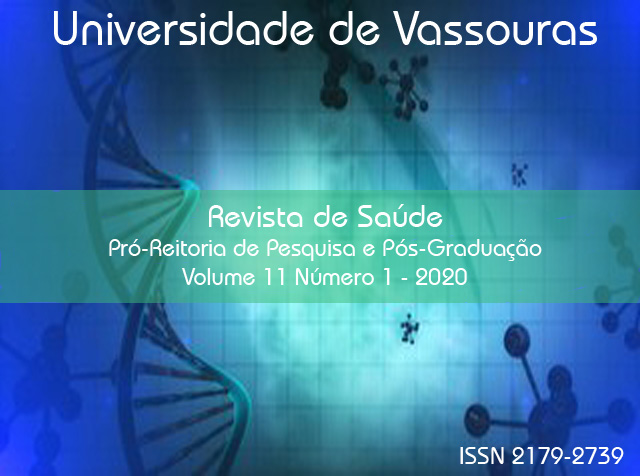Insomnia During the COVID-19 Outbreak in Brazil
DOI:
https://doi.org/10.21727/rs.v11i1.2336Resumo
Introduction: The outbreak of COVID-19 among humans in Brazil and its spread around the world is strongly impacting mental health. Health problems such as anxiety, depression, insomnia and fear were the most related to. High levels of stress during the day can impair quality and time of sleep.
Method: The purpose of this article was to update, through a bibliographic search, the effects of the pandemic on sleep disorders, with insomnia being the most related. A systematic search had been carried out in the main databases: Lilacs, Bireme and PubMed. The languages used in the search were Portuguese and English, from articles published this year. Using the following keywords: Sleep quality, COVID-19, Insomnia, Cognitive behavioral therapy.
Discussion: The concern about financial and political uncertainties, feelings of impotence and fear of self-contamination and of family members are factors that corroborate with the worsening of the sleep quality of the population and health professionals’ working on the front lines of the fight against the pandemic, leading to increased cases of insomnia. Behavioral Cognitive Therapy, hypnotherapy and social interaction mediated by Web conferencing tools are the best ways to treat these symptoms at the moment. Even so, the brazilian literature on the subject is extremely scarce, making it an extremely relevant subject for future research.
Downloads
Arquivos adicionais
Publicado
Como Citar
Edição
Seção
Licença
Autores que publicam nesta revista concordam com os seguintes termos:
Autores mantém os direitos autorais e concedem à revista o direito de primeira publicação, com o artigo simultaneamente licenciado sob a Licença Creative Commons Creative Commons CC BY que permite o compartilhamento do trabalho com reconhecimento da autoria e publicação inicial nesta revista. Esta licença permite que outros distribuam, remixem, adaptem e criem a partir do seu trabalho, mesmo para fins comerciais, desde que lhe atribuam o devido crédito pela criação original. É a licença mais flexível de todas as licenças disponíveis. É recomendada para maximizar a disseminação e uso dos materiais licenciados.
Autores têm autorização para assumir contratos adicionais separadamente, para distribuição não-exclusiva da versão do trabalho publicada nesta revista (ex.: publicar em repositório institucional ou como capítulo de livro), com reconhecimento de autoria e publicação inicial nesta revista.
Ver o texto legal da licença em: https://creativecommons.org/licenses/by/4.0/














